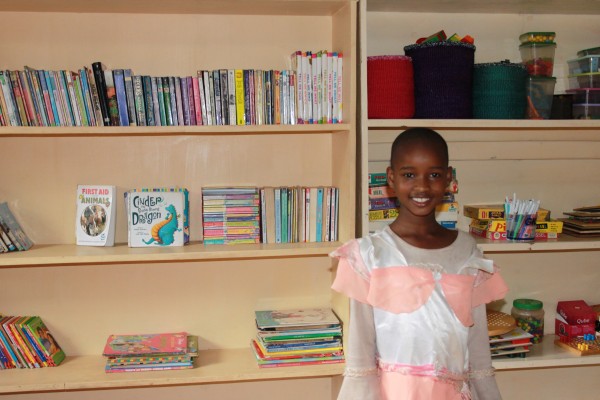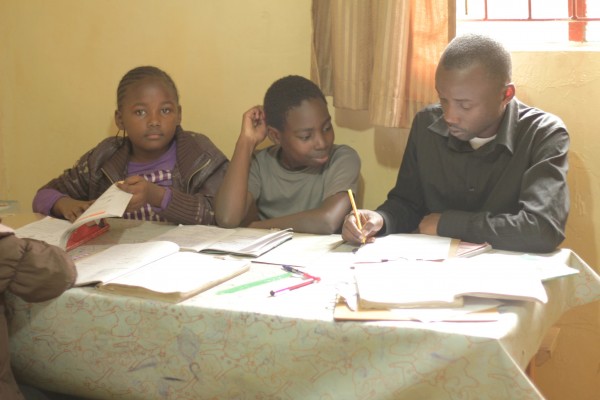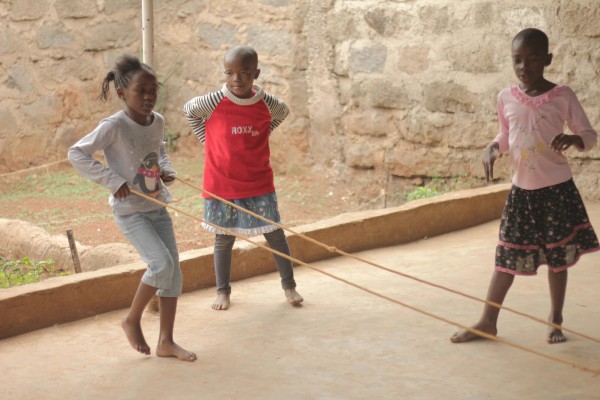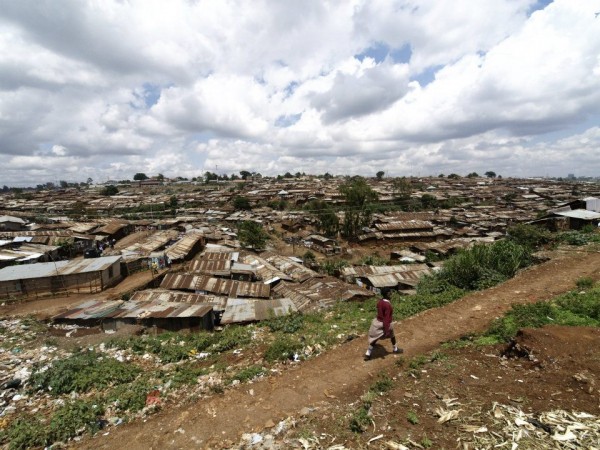What is KCE?
Kibera Children Education is an independent non-profit organization, which provides educational support to children who live in Kibera, a vast slum area of Nairobi, Kenya. Our work is based on the UN declaration of Human Rights and the Convention on the Rights of the Child.
KCE is built upon two branches: an Education Centre located in Kibera and Tumaini Watoto (Children’s Hope), a sponsorship program which enables children from Kibera to attend school by providing school uniforms, pay school and lunch fees and much more.
“I alone cannot change the world, but I can cast a stone across the waters to create many ripples.” ― Mother Teresa
Since KCE is a non-profit organization all funds go directly to our ongoing and future projects. The board members work voluntarily. An independent auditor, who has no affiliations to KCE, audits KCE’s finances.

The Education Centre
The Education Centre is located in the outskirts of Kibera, the second largest slum in Africa, and is open for children of ages 3 and above. At the Centre they can borrow and read books, draw, play instruments, use our computers for various activities and play games with their friends as a fun and educational way to learn.
Since many pupils in Kibera lack school textbooks and live in houses without electricity supply, the Education Centre provides a place for them to study in the evenings. At KCE they have a library full of textbooks at their disposal, space and teachers’ support. This makes it possible for them to do their homework in a developing and safe environment, and perform well in school. The Centre also offers several computer services. In Kibera the majority of households lack access to modern technology, but it is of great importance for the children to learn how to use computers and develop necessary know-how skills/knowledge since there is a high demand for computer skills all over Africa.
At the Centre an association has been established for youths aged 13 years and above. The youth group meets with the KCE staff to discuss and exchange thoughts and ideas on various teenage related subjects. Topics discussed are i.e. what it’s like to be a teenager in Kibera, gender inequalities and reproductive health.
“During my lifetime I have dedicated myself to this struggle of the African people. I have fought against white domination, and I have fought against black domination. I have cherished the ideal of a democratic and free society in which all persons live together in harmony and with equal opportunities. It is an ideal which I hope to live for and to achieve. But if needs be, it is an ideal for which I am prepared to die.” ― Nelson Mandela
Our aim for the future is to in even greater extent use the Centre as a creative forum where awareness programs are held. When the youth is educated in gender rights, reproductive health and learn more about physical as well as psychological health, they gain life changing skills which we believe can help reduce poverty and despair.
Sponsorship Program – Tumaini Watoto
In 2003 the Kenyan government introduced free education up to primary classes for all children in public schools. However, in reality, the cost of education is not entirely free due to additional tuition fees, school uniforms and shoes, textbooks, school transport, feeding program fee and school bags. In the slums of Kibera a family of four survives on 1 USD per day or less (the subsistence level). In other words, they live in absolute poverty.
“We are the change we have been waiting for.” ― Barack Obama
In order to give more children the opportunity to go to and stay in school, KCE started mentoring activities through Tumaini Watoto during 2004. The project has sponsored nearly 38 children since 2004. Many of them has succesfully finished secondary school and some have managed to continue to university. The children are given all the school material needed and have access to the Centre. We believe education is the key out of poverty.
Our Story
The embryo of Kibera Children Education evolved in 2004 when some of the board members went to Kenya. They visited a kindergarten in Kibera and the headmaster of the school asked them if they could help her find sponsors for 20 of the poorest children, which they did. But as the children grew older and left for primary school it became harder to stay in touch with them and their families.
In 2007 one of the board members returned to Nairobi and began to have direct interaction with the children, their parents and custodians. Through the means of donations a local staff member could be hired part-time to monitor the sponsorship project and it´s organic growth. As time went by it turned out that many children and parents wished for a gathering place where all the children could come together to borrow books and do their homework. Their wish came true in 2008-2009 when the Kibera Children Education was founded. The first location of the centre was a small rented room of 10 square meters, which stored two bookshelves and a table. The centre was very appreciated and about 50 children came to visit each day. The room and the yard outside soon filled up and we outgrew our former facilities.
“Our children may learn about the heroes of the past. Our task is to make ourselves the architects of the future.” ― Jomo Kenyatta
KCE searched for a larger space so that the needs of all the children that came there to attend the various activities could be fulfilled. In 2012 a house with it´s own small garden was found and this soon became the current location of the centre. This new and larger house enabled KCE to employ more staff and teachers and thus provide even more children the opportunity to participate in all KCE’s activities.
Kibera
Kibera is Africa’s second largest slum, some might even claim it is the largest. The exact population is not fixed but it’s estimated to be around 1 million, sharing a surface of 2,5 square kilometers. The majority of the inhabitants live in extremely unbearable conditions due to the comprehensive unemployment.
The area is characterized by extreme poverty and humanitarian shortcomings such as clean water and sanitation. It is estimated that there are 2600 sanitation facilities of which 1000 are in use. It means that at least 500 people share one toilet. The illegal connections of water pipes pollute the water, which is being sold at excessively high prices and is a major source of disease spread. HIV/AIDS is another major issue in the slum. Between 12-15 % of the total population is estimated to be infected. In certain groups, where young women are the most vulnerable, the percentage is higher. Also, the crime rate in Kibera is high mainly due to the widespread of poverty. Riots and demonstrations are common due to a general dissatisfaction amongst the population.
Despite the harsh living conditions and hardships, Kibera is a place of creativity and ingenuity. The inhabitants’ willingness to change and improve their living conditions is high but unfortunately they lack money and other resources to make a greater impact.
UN Convention on the Rights of the Child
KCE’s work is conducted in accordance with the UNCRC which Kenya ratified 1990. This legally binding international instrument includes human rights and ensures children’s special needs for support and protection.
According to UNCRC state parties shall encourage the production and dissemination of children’s books, recognize the right of the child to rest and leisure, and to engage in play and recreational activities respective to their age. The state parties are also obliged to make primary education compulsory and available to all and to take measures to encourage regular school attendance and reduce dropout.
At KCE we try to give the children of Kibera all above mentioned by providing means for them to go to school, give them access to our library, facilitate space for doing homework and study, provide creative and fun leisure activities. The girls in KCE’s sponsorship also have access to feminine hygiene products to reduce absenteeism in schools and to prevent infectious diseases.
Read the full UNCRC here: http://www.unicef.org/crc



